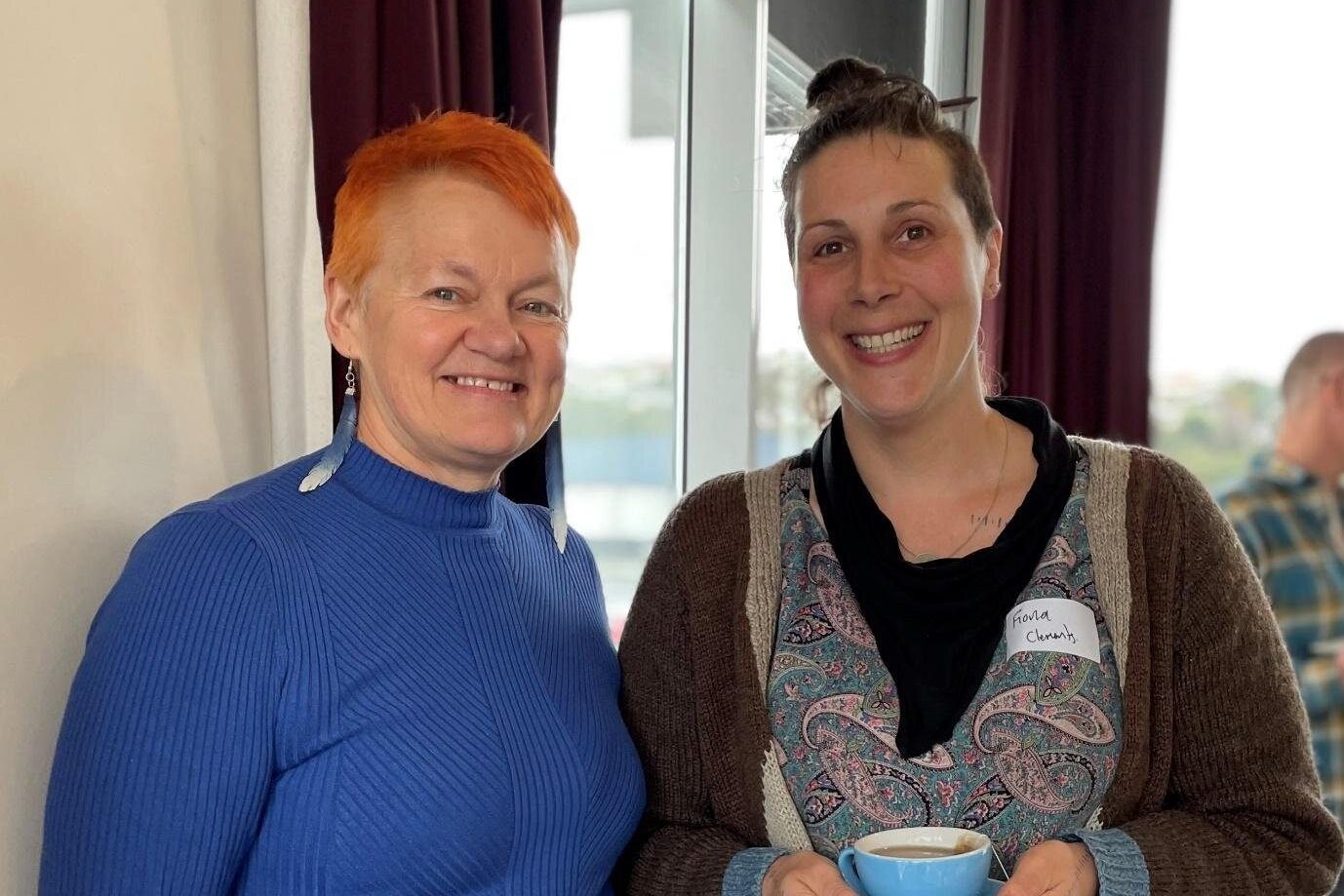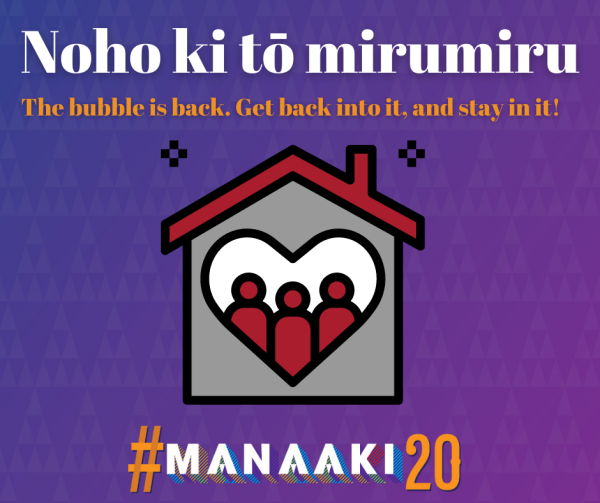LOGIN:
“We may not be able to get certainty, but we can get probability; and half a loaf is better than no bread”. C. S Lewis.
C.S. Lewis, the author of the Chronicles of Narnia, was clearly ahead of his time. The uncertainty that is associated with the impact of the coronavirus in our lives is part of the challenge of navigating fuzzy landscapes. As we receive the briefings on new ‘places of interest’ or tune into the 1pm briefings to find out the rollcall of COVID cases, we know all too well the path of the unknown.
I was taken by a recent post which revealed a novel way that Tuwharetoa had embraced the lockdown period with. Tuwharetoa initiated a ‘rewena-a-thon’ – a bakeoff which was then distributed around the community.
Of course, we all crave for information that will help us to feel on solid ground. Accordingly, we have created a dedicated web page for COVID-19 updates. Have a look…..
One of the immediate impacts of the lockdown period has been in seeing new whānau applications for support through the PUNA fund.
70% of the whānau felt their biggest reason for needing help was reduced family income and job uncertainty while as many as 63% of them could not meet basic needs. Twenty-eight whānau experienced sickness within their household with either themselves or whānau members falling sick and/or requiring medication.
“I am on a benefit due to multiple medical problems as well as having PTSD depression and anxiety I am on multiple medication.”
In terms of the current, most pressing concerns, 95% of whānau were concerned about meeting kai needs for their families, while 30% required more support with power and 22% of them needed support for data being their current concerns or pain points. Shortages of kai, power and data meant they were unable to support their families in these uncertain lockdown times, and hence, felt deprived and concerned.
“I have a family and we need help with food and data please we are struggling daily to survive.”
This week in Dunedin it was a real pleasure to meet Fiona Clements whom we have funded through Wave funding for Para Kore Ōtepoti. This project will involve a collaboration between Para Kore and Res.Awesome Ltd with the goal of transforming Māori communities in Ōtepoti to low waste, low carbon lifestyles through utilising mātauranga Māori values to reduce and reuse resources.
The project will deliver the Para Kore programme to three marae, kōhanga, kura or Maori organisations in Ōtepoti in a year-long pilot programme, after which proof of success can be used to secure more funding to expand the project further afield.
Para Kore aims to go beyond the aim of reducing rubbish and recycling, to creating and supporting the design of systems which generate no waste in the first instance. They promote the conscious choice of local products and the normalisation of reducing, re-using and composting in our everyday living practices. Through this collective responsibility and action, positive contribution is made to support optimal health and wellbeing of people and planet.

Helen Leahy and Fiona Clements
This week Te Pūtahitanga o Te Waipounamu hosted another groups who have come to visit, to reach out and find areas of mutual interest. One such group is JustSpeak.
It was wonderful for Ivy, Tanita and I to meet with JustSpeak CEO Tania Sawicki Mead, and Chantelle Awhina; nō Raukawa ki te Tonga; Muaupoko (Campaigner/Community Activator) for JustSpeak | www.justspeak.org.nz. In the photo, Chantelle is in the middle; Tania between me and Chantelle.
Chantelle brings a lot to the role as a māmā, youth worker, her staunch tū i tōna mana wahine. Her passion is in looking at what’s driving the mass incarceration of wāhine Māori and how we can contribute to efforts for impactful change for our wāhine. Chantelle is based in Otautahi.
On Tuesday, I had the privilege of joining with Shelly Kapua (Arai Te Uru); Desiree Mahy (Senior Advisor, Te Puni Kōkiri) and Leonie Matoe (Te Tari Taiwhenua, Department of Internal Affairs) amongst a very crowd of over 100 people attending Funding for Equity – Funding for Change Forum at the Edgar Centre in Dunedin. The insights shared inspired at this Forum enabled us to explore what more is possible – and how we might all be a part of rebuilding processes that bring community and whānau to the table, share power and make decisions collaboratively. There was some very powerful dialogue as part of the panel discussions, focusing on how to build relationships and fund based on trust; the strength of collaboration, and the need for simplicity; clarity and consistency in funding guidelines.The Forum produced a report on Funding for Equity – Funding for Change. The section on that report related to COVID and its impact on funding approaches makes for interesting reading now in the context of the current lockdown.
Groups strongly identified that the Covid-19 context brings increased need, more complex need and increasing pressure on the funding sector.
Covid-19 has ramped up the level and urgency of work required for many organisations and communities. Some groups saw a significant and rapid increase in the volume of need. Others are bracing for longer term impacts. A widespread concern is that already existing complex needs may become systemic across communities post-Covid.
The impacts of isolation and a lack of connectedness came into sharp relief during lockdown – this requires both immediate responses and a concerted effort to build more connected and resilient communities. Some commented that they found a heightened awareness of mental health issues in their communities – some acknowledging issues for the first time and others experiencing more severe symptoms under the pressure of lockdown.
The importance of food resilience and the arts was also highlighted. In this context, community work meets essential needs (not ‘nice-to-haves’) and it will be vital to fund it.
For some groups, Covid-19 is also a big wake-up call about their level of exhaustion and the unsustainability of working voluntarily, often on top of full-time paid work elsewhere – this led to conversations about the need to resource volunteers, perhaps with an honorarium. The lockdown time was also used to reconnect with families and recover.
Covid-19 is changing the ways groups operate and raising a whole range of operational questions that need to be answered quickly and well. It also raises pressing questions about how we rebuild – what we keep, what we let go of, and what we create new. Some groups are seeing new people stepping up to do mahi, groups are working together on some activities, and it is an opportunity to think outside the square about how to do things.
The impacts of isolation and a lack of connectedness came into sharp relief during lockdown – this requires both immediate responses and a concerted effort to build more connected and resilient communities.
Another group of visitors came to Te Pūtahitanga o Te Waipounamu, hoping to connect, and listen to feedback, from Māori health providers in Otautahi – Canterbury district in relation to family violence.
The scoping project is looking at what training for family violence screening would look like in the primary health sector – we have been on a journey for the last year and are due to report back to the Ministry at the end of August.
The purpose of the project is to provide advice to inform the implementation of the scoping project, including:
Addressing issues affecting or impacting on tāngata Māori within the scoping, and engagement phases
Provide advice, direction insights and recommendatons to the Ministry of Health Project Team, Family and Community Health, Population Health & Prevention Directorate
To lead the engagement with the Primary Health Sector to gain insight of localised communities of practice
Provide feedback form the collective engagement with the Primary Sector.
As part of our journey in this project, they have attended some of the DHB based Violence Intervention Programme (Tairawhiti, Mid Central, Whanganui and Lower Hutt) and also meeting primarily with Maori Health Providers in Counties Manukau, Whanganui and Tairawhiti so far – as well as some Pacfika providers more recently. We have also met with other stakeholders within and outside the ministry.
The Māori Expert Advisory Group consists of Matt Matamua; George Davis; Te Awhimate Nancy Tait; Caroline Herewini; Dr Cherryl Waerea-i-te-rangi Smith; Tracey Robinson; Tricia Walsh and Tim Marshall.
